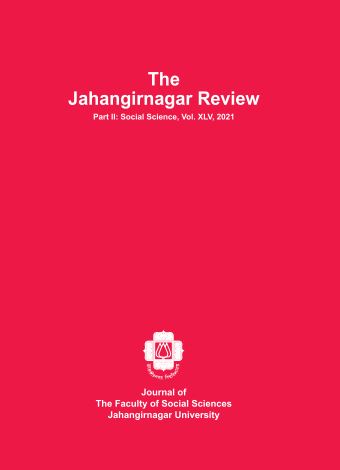Can Macroeconomic Volatility Affect Industry Stock Return? A Study of the Banking Industry Using the GARCH Model
Main Article Content
Abstract
This study focused on developing a banking industry index and studying the impact of time-varying macroeconomic risk on the volatility of industry stock returns. The study considers DSE for industry index building and used five macroeconomic risk factors entitled consumer price index (CPI), T-bill rate (TBR), Broad money (M3), the exchange rate (EXCR), and DSE general index (DSEGEN). To achieve the specific objectives, the authors created an index for Banking sectors that takes into account all of the listed companies in the industry and adjusts for all types of corporate changes (i.e., new listings, deletions, bonus shares, and so on) to produce a clear picture of industry performance. All calculations were carried out utilizing data from 2005 to 2019. Several tests models, including the Augmented Dicky Fuller (ADF) Test and the Generalized Autoregressive Conditional Homoscedasticity (GARCH) Model, have been considered to find linkage evidence between industrial stock returns and macroeconomic conditions to facilitate the implementation of the study. The findings of the study suggest that Consumer Price Index, M3, Exchange rate do not significantly affect banking sectors return volatility, but general index return and T- bill rate is significant here. This study has shed light on how the banking industry performs in the face of various macroeconomic conditions. So, investors will infer whether the banking industry will provide the most benefit or not and how they should act in various portfolios and thus in investment decision-making.

